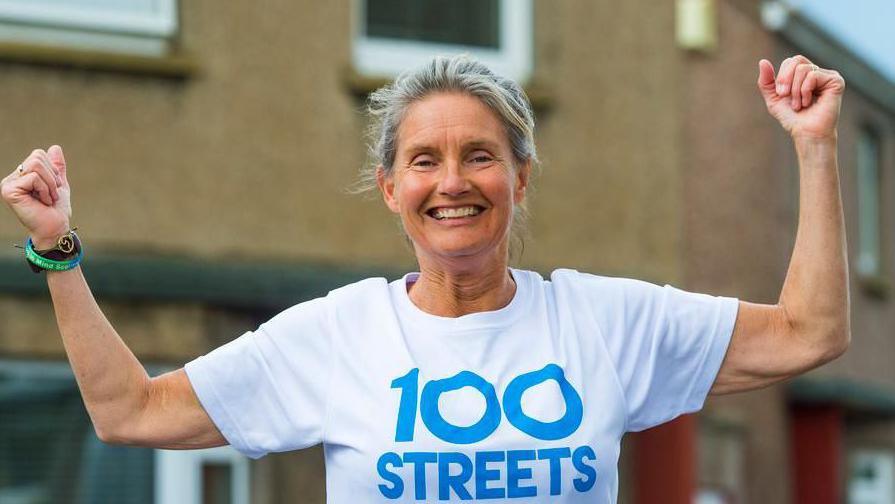My wife was everything, and depression took her - Scott Hastings
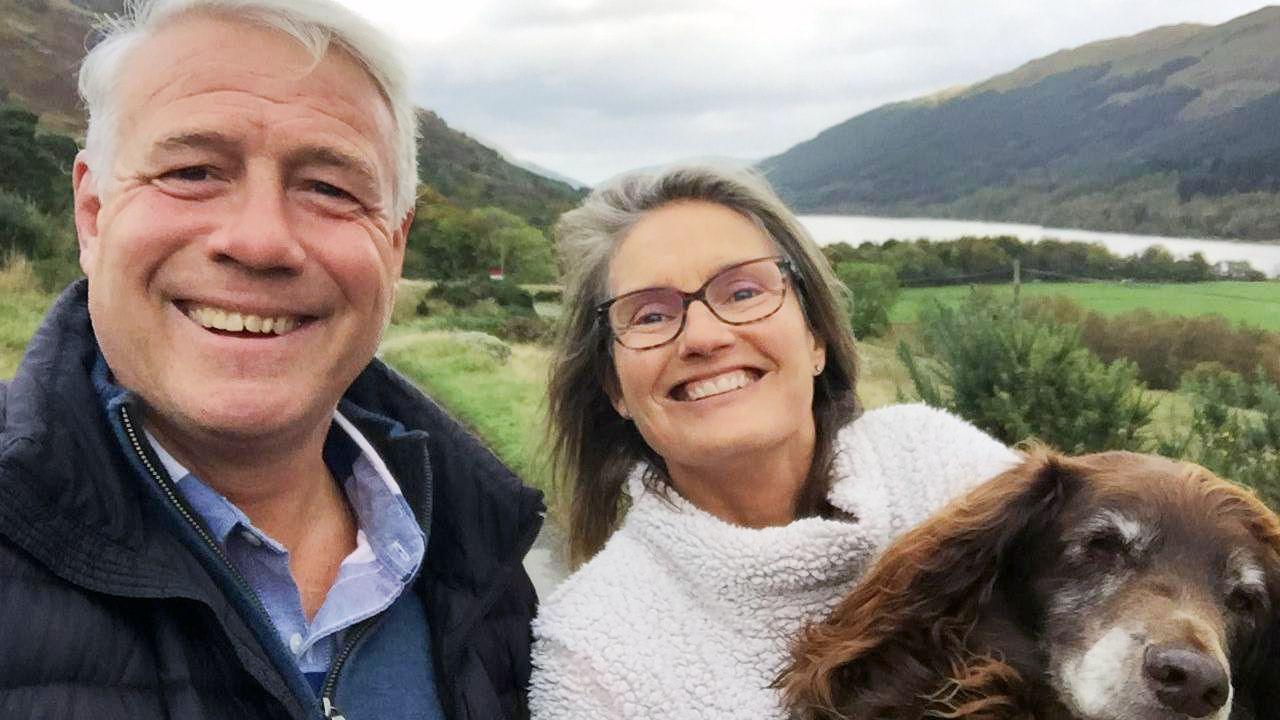
Scott Hastings has spoken publicly about his wife Jenny's death for the first time
- Published
Jenny Hastings lived with depression for 20 years before taking her own life. On her worst days she could not lift her head from her pillow.
Her husband, former Scotland rugby international Scott Hastings, has described it as a cruel illness to witness - for himself and for the pain it caused his wife.
Spells of the sickness would take hold of Jenny, sometimes for months at a time - and yet when she "bounced back", she was a keen runner, swimmer and tireless mental health advocate.
Last month, after going for a swim at Wardie Bay in Edinburgh, Jenny, 60, disappeared in the water. Her body was found in the area days later.
This article contains details which some readers may find distressing.
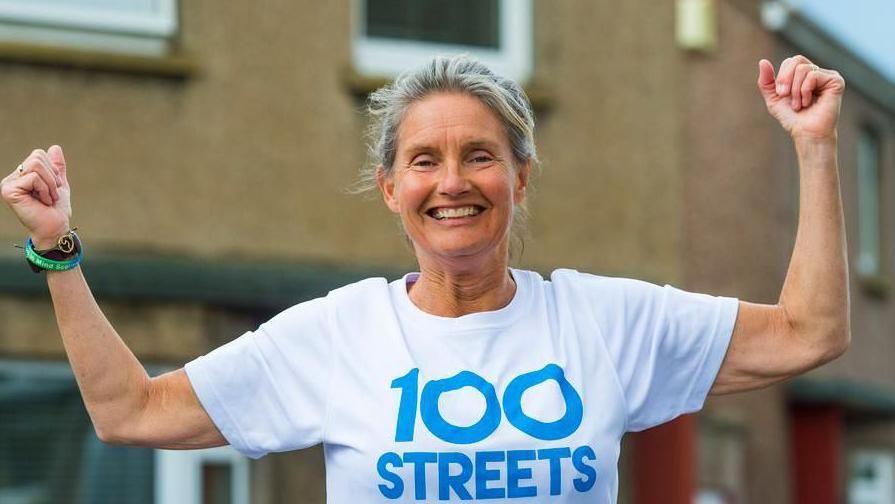
Jenny Hastings had spearheaded a charity campaign to help people improve their mental wellbeing
Now, on World Mental Health Day, Scott has spoken publicly about his wife's death for the first time.
He told BBC Radio Scotland's Mornings programme that he has struggled to come to terms with the loss over the last month.
"I’m utterly broken-hearted," he said. "She was such a beautiful, loving mother, wife, sister. We miss her dearly.
"When she was unwell it was so cruel to witness the distress that Jenny ended up in.
"The family are wrecked, so am I and we’re left to carry the pieces."
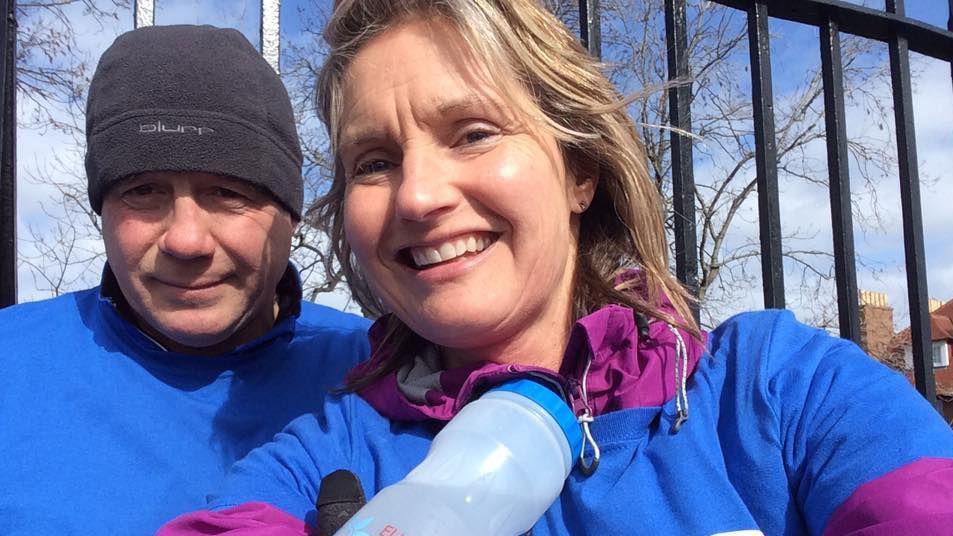
Keeping fit and spending time outdoors was important for the couple
On the day of her disappearance, Jenny had been visited by a mental health practitioner.
Her depression had taken a downturn and Scott had arranged to meet her in the afternoon at Wardie Bay.
It was her favourite spot to swim, and Scott knew it to be a "place of healing" during her dark days.
"When I arrived back [home] there was just something," said Scott. "She’d left her watch here.
"I got down there and I suddenly realised the situation - I couldn’t see her and I phoned the coastguard straight away."
Scott said he knew Jenny had gone when he saw her buoyancy aid tethered in the Firth of Forth, as it was "the last thing that would have saved her".
A search was launched by the police, the RNLI, HM Coastguard and oceanographers.
Jenny's body was found five days later, on the couple's wedding anniversary.
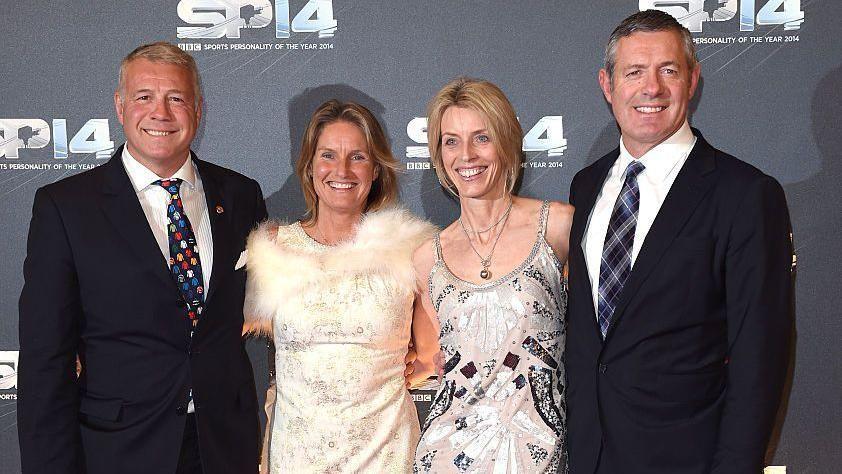
Scott Hastings (left) and his brother Gavin (right) with their wives Jenny and Diane
Scott suspects his wife's mental health problems began with post-natal depression after the birth of their second child.
He said her symptoms had manifested in a number of ways over the last two decades, including disordered eating and being unable to get out of bed for days or even months at a time.
In the last five years, she experienced what Scott described as seven "catastrophic episodes".
She disappeared from the couple's Edinburgh home for 36 hours in March 2017 and walked for miles to the Pentland Hills, eventually getting help at a police station.
"We’ve had many scares over many years," said Scott. "Literally each time would take four or five months and this one just became too unbearable for her.
"Suicide is preventable, and for many years Jenny prevented suicide."
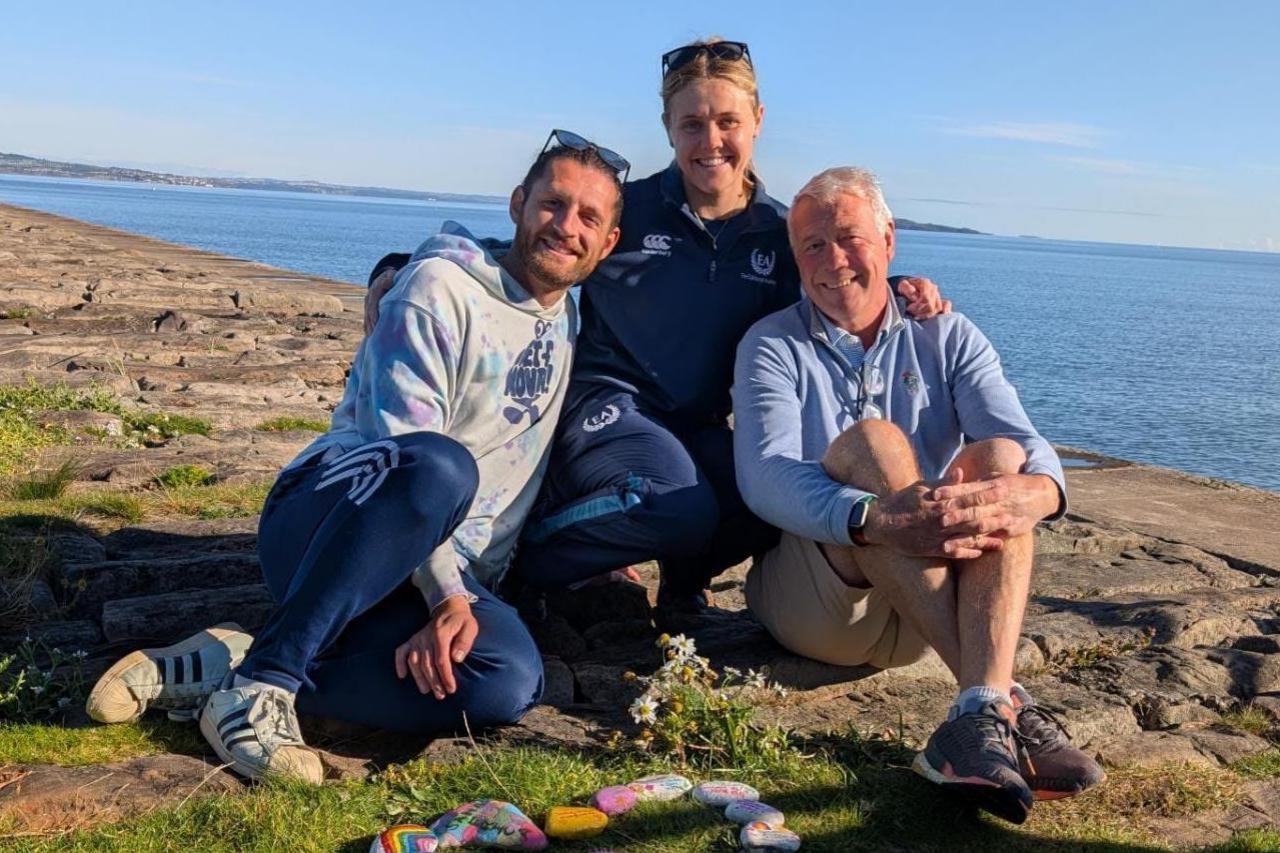
Scott, right, with his two children Corey and Kerry-Anne
Scott's interview comes at a time when mental health problems are on the rise in Scotland - with more women than men reporting issues across all age groups in the last census.
Much of Jenny's life was spent working with mental health charities and initiatives, sharing her own experience in an effort to help others.
The couple spearheaded the 100 Streets challenge - a campaign that aimed to keep people active and improve their mental wellbeing.
Exercise and spending time outdoors was important to both of them - Scott being the brother of former Scotland rugby captain Gavin, and the most-capped player at the time he retired.
The couple also worked with Grangemouth Stags rugby club after they lost members to suicide.
Scott has promised to continue as an advocate for mental health.
"She was beautiful, she was everything to me," he said. "She gave so much to other people. She never realised what she did, the impact she had on people.
"The one thing I’ve learned is just listen to people. Be more sympathetic to other people, help other people.
"Anybody out there who has a family member or friend - please just hold their hand, listen to them and help them through their dark days."
Need help? If you have been affected by this story the BBC Action Line web page features a list of organisations which are ready to provide support and advice.
Related topics
- Published5 September 2024
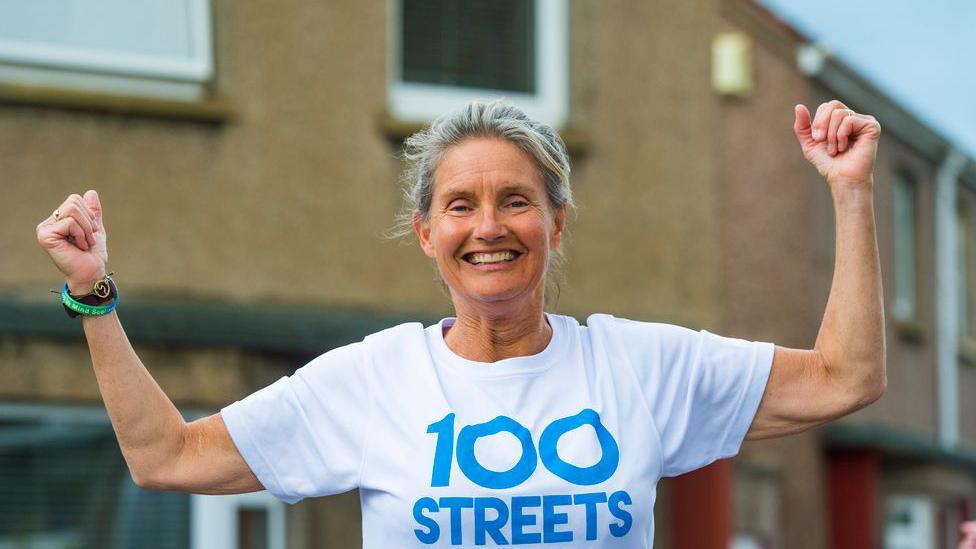
- Published7 September 2024
